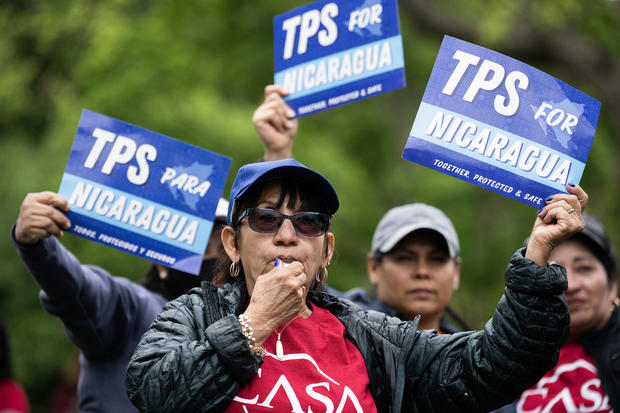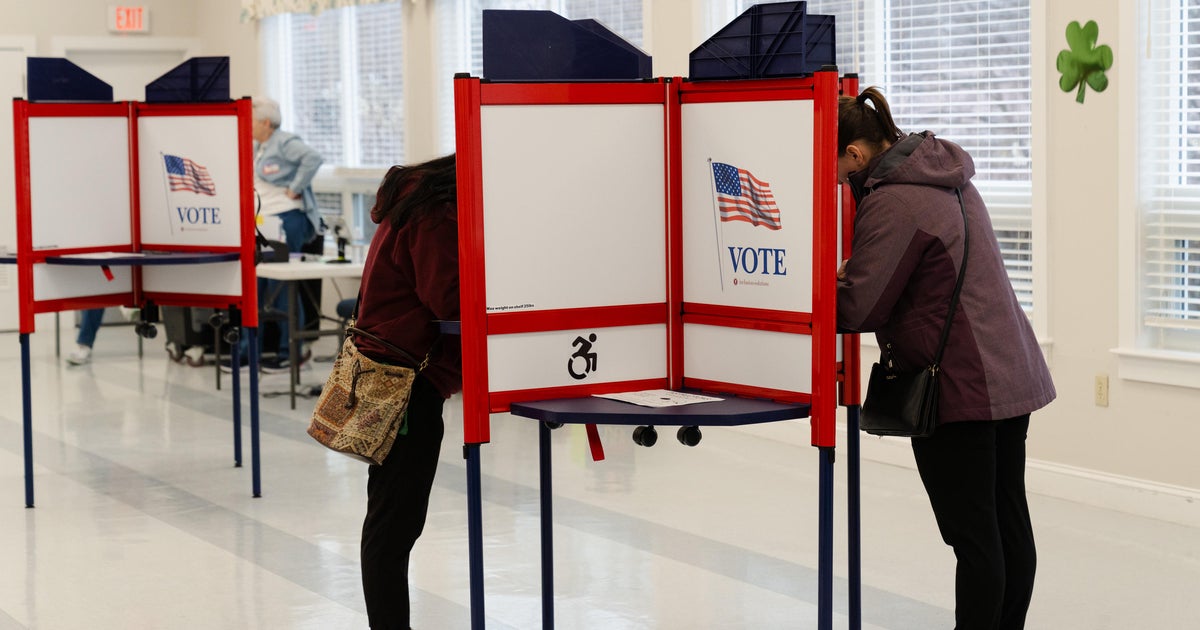U.S. extends temporary legal status for over 300,000 immigrants that Trump sought to end
Washington — The U.S. government on Tuesday announced it is extending the temporary legal status of more than 300,000 immigrants whose deportation protections and work permits were targeted by the Trump administration.
The Biden administration will allow roughly 337,000 immigrants from El Salvador, Honduras, Nepal and Nicaragua to continue living and working in the U.S. legally under the Temporary Protected Status (TPS) program. CBS News first reported the policy decision on Monday.
The 1990 law authorizing the TPS policy, which the Biden administration has used at an unprecedented scale, allows federal officials to grant deportation relief and work authorization to migrants from countries beset by war, environmental disaster or another "extraordinary" crisis.
As part of its broader crackdown on illegal and legal immigration, the Trump administration tried to end most TPS programs, including those for El Salvador, Honduras, Nepal and Nicaragua, arguing that prior administrations had abused the authority. But those attempts were blocked in federal court.
The Biden administration's move will reverse the decision to end TPS for these four countries and grant a temporary reprieve to those currently enrolled in the program. It will also likely render moot a federal court lawsuit filed by advocates who challenged the Trump administration's TPS terminations. A hearing in that case is scheduled for later this month.
A source familiar with the Biden administration's planning said Tuesday's announcement is directly tied to the ongoing court case.
Despite calls from Democratic lawmakers and migrant advocates, the administration is not moving to expand — or redesignate — the TPS programs for El Salvador, Honduras, Nepal and Nicaragua. Such a move would have opened the program to new applicants, making more recent arrivals from these countries eligible for TPS.
Some top administration officials have opposed expanding TPS eligibility for certain nationalities, citing concerns about encouraging unlawful migration to the southern border, where migrant arrivals have plunged since early May, people familiar with internal deliberations told CBS News. TPS does not benefit new arrivals, but some officials believe generous immigration announcements could act as "pull factors."
Instead, the extension announced Tuesday will allow existing TPS holders from El Salvador, Honduras, Nepal and Nicaragua to continue living in the U.S. for another 18 months. According to U.S. Citizenship and Immigration Services (USCIS) data, 241,699 Salvadorans, 76,737 Hondurans, 14,556 Nepalis and 4,250 Nicaraguans were enrolled in the TPS program as of the end of 2021.
Some of these immigrants have lived in the U.S. for decades and now have American citizen children. The TPS program for El Salvador, for example, was first established in 2001 following a devastating earthquake in the small Central American country.
During the Trump administration, officials also sought to end the TPS programs for Haitian and Sudanese immigrants. The Biden administration later reversed those moves, and expanded the number of Haitians and Sudanese eligible for TPS.
TPS allows beneficiaries to live and work in the country without fear of deportation, but it does not provide them a path to permanent residency or citizenship. Those who lose their TPS protections could become eligible for deportation, unless they apply for, and are granted, another immigration benefit.
Ahilan Arulanantham, a lawyer representing TPS holders in the federal court case over the Trump-era terminations, called Tuesday's announcement "an enormous, hard-fought victory for the TPS community."
"They pushed the Biden Administration to finally fulfill the President's campaign promise, so that everyone who held TPS status in 2017 — when the Trump administration attempted to end the program — now has their status restored," said Arulanantham, who is also a professor at UCLA School of Law.
But Arulanantham said TPS holders would remain "in a continued state of uncertainty," unless they were granted permanent legal status. Despite strong backing from Democrats and some Republicans, proposals to give permanent residency to immigrants with TPS have stalled in Congress, where lawmakers have been gridlocked on immigration issues for decades. Republicans in the current Congress have vowed to oppose any legalization program unless stricter border and asylum laws are passed.
Under President Biden, a Democrat, the U.S. has created TPS programs for a record number of migrants and countries.
Hundreds of thousands of migrants from 16 countries currently qualify for TPS, including those from Afghanistan, Cameroon, Ethiopia, Myanmar, Ukraine and Venezuela, all of whom were made eligible for the program under Mr. Biden.





